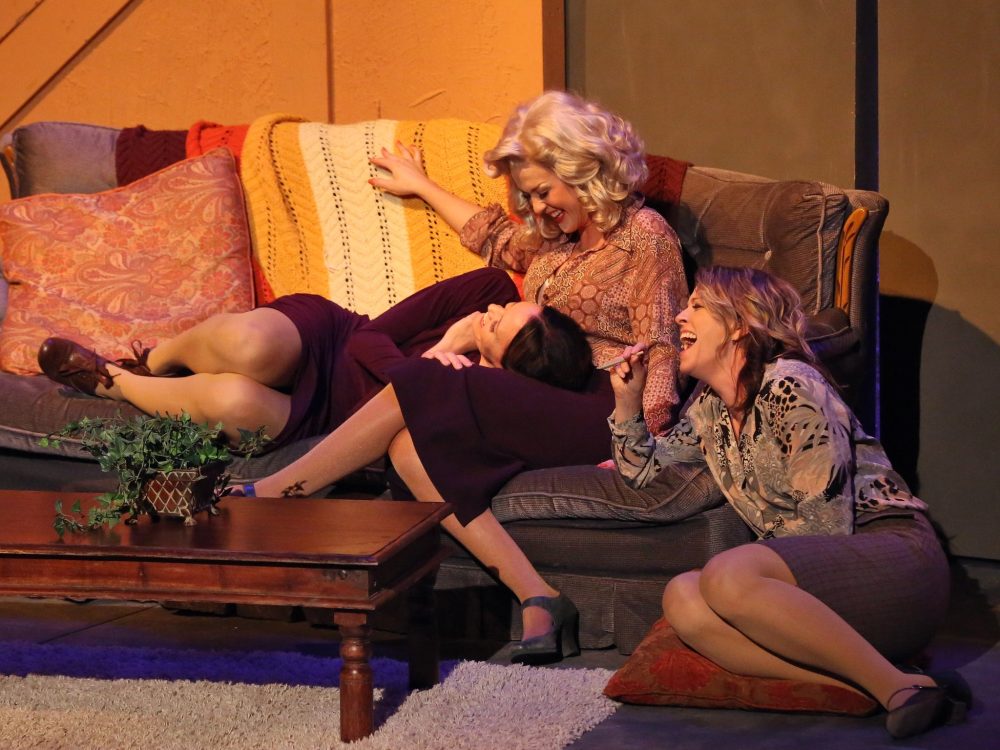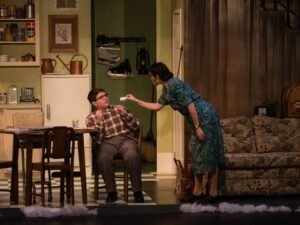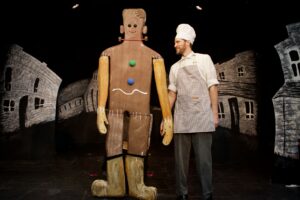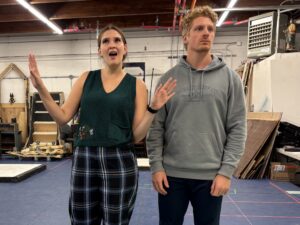In the early months of 2012, the Saskatoon Summer Players held auditions for their upcoming production of The Producers in the summer.
It was my third time ever auditioning for a musical. My first audition in high school, and I was so scared when I received a part that I turned it down. My second audition for a high school show I got a part again, but that time I stuck with it.
And then, in my first-ever community theatre audition, my nervous and sweaty 18-year-old self got a part in the chorus.
It was exhilarating, it was nerve-wracking, it was tons of fun – and as an impressionable teenager I knew I would be chasing the joy I felt doing that show for a long time.
So now, as a slightly-older-than-a-teenager, I’m finished up a run of 9 to 5 (yes, it’s Dolly Parton!) with the Saskatoon Summer Players. After spending the last 10 years involved with community theater in Saskatoon and in Ottawa, I thought I’d share the 10 things I’ve learned:
1. It’s amazing what you can accomplish when you work together
If you’ve ever been to the theatre to see a musical or a play, you probably remember the leads — or whoever delivered the villainous monologue or sang the heartwrenching power ballad.
But there’s so much that goes into making a theatre production – especially a community theatre production – that most people don’t see. The pit orchestra, stage manager, choreographer, props manager, set designer, construction team, and more are all equally important to making a production shine.
Don’t believe me? Try to imagine a production of Phantom of the Opera with no falling chandelier and where everyone is dressed in their street clothes, or a version of Les Misérables sung entirely acapella, or Footloose without any dancing – you get the idea.
2. There’s a LOT of talent not employed full-time in the arts
Community theatre brings in all sorts of professionals — teachers, lawyers, engineers, students, etc. — that have incredible skill sets, but don’t make their living full-time in the theatre. And it’s not like these people don’t possess the talent! It’s stunning to see what your friendly neighbourhood office worker can do onstage, or with an instrument in their hands. Just because you’re not employed full-time as an artist doesn’t mean the art you create or contribute to is less valid.
I am blown away every year when we can put together a full pit orchestra for volunteer musical productions — and it’s an orchestra of talented musicians that any ensemble would be eager to have on their team!
3. I’ll be happily learning forever
Every time I get the chance to do a new show, it feels like I learn something new. Sometimes it’s something about the theatre or the arts industry, sometimes it’s something about myself. For example: I learned how to properly and safely fall backwards on stage for 9 to 5, a very theatre-applicable thing. I also learned that I enjoy using power tools and I’m competent with them. Not good with them, mind you, but maybe that’s something I can learn in the next year or two.
4. Playing a villain doesn’t make you a bad person – and consent is key
I’ve had the opportunity to play a couple of really nasty characters onstage – Professor Callahan in Legally Blonde (Victor Garber’s character in the movie) and now Franklin Hart Jr. in the upcoming 9 to 5. Both are sleazy and horrible, and they have definitely made me feel icky playing them at different points. But in 9 to 5, Saskatoon Summer Players brought in an intimacy director — a relatively new addition to the theatre world — to help navigate those up-close-and-personal moments. It’s important to leave the part you’re playing, whoever it is, in the theatre when you’re done for the day. You are not your character.
It also helps taking the time to create a rapport with the people you’re working with. And if you’re going to be physical with someone, or in someone’s personal space, it’s never a bad thing to ask what’s going to be comfortable. Consent is cool.
5. Dancing is HARD – and it looks so good when it’s done well
Do you think you can dance? I’ve been in community theatre shows across the last decade, and all I can confidently say is I can hit choreography in rhythm. Even hitting pretty simple music theatre choreography takes a lot of energy — it tires me out just watching our dancers in 9 to 5 nail the choreo in song after song after song. You want to meet a real athlete? Talk to a trained dancer. That’s an art and a sport wrapped up in one, and making it look as good as they do is another thing altogether. Our 9 to 5 choreographer Brenda Bennett and assistant choreographer Toryn Adams are wildly talented. Parents — put your kids in dance, if you’re able to make it happen. Healthy and active lifestyle forever.
And to be clear — I think there’s a lot of things in a theatre production that are tremendously difficult (here’s looking at you, stage managers and musicians of the pit orchestra!). But when I see something that I physically cannot do — which is a lot, frankly — it’s just that much more impressive to me.
6. The theatre is full of beautiful people
This is true in pretty much every sense of the word. You’ll be hard-pressed to find a group as full of smiles and laughter and love — or a group as good-looking — as genuine theatre people. Does that mean everyone gets along all the time and it’s rainbows and kittens forever? Of course not. But there is something truly lovely about artistic folk working on a project together that can bring out the best in them.
There aren’t many volunteer organizations that have made me feel as good as the Saskatoon Summer Players, and my experience says the same can be said for a lot of local arts organizations.
7. The friends you make are real, if not always permanent
You’re not going to be friends with everyone you meet, but the friends you make in theatre are something special. They might only last for the run of a show, and then spring back up the next time a show comes around, but that doesn’t make them any less special.
And then there’s the case where community theatre friends become friends for life. I was the co-best man in a wedding just last year for two of my dearest friends that I bonded with in SSP shows, and I’ll be attending the wedding of another community theatre friend later this summer. I can’t imagine my life without the people I’ve met doing this.
8. Nothing beats the adrenaline rush of tearing open the crotch of your pants during the first musical number on opening night
Although a close second is being handed a staple gun backstage to fix the problem.
9. Coming together for art is so important
I enjoy watching Netflix and Disney+ just as much as the next person, but enjoying art is meant to be a group experience. I don’t want to listen to a concert on my own — I want to share it with friends or family!
And especially as we step further away from the dark days of the COVID-19 pandemic, I think it’s more important than ever we find ways to enjoy art together. And being involved in community theatre is a completely free and fun way to do that.
10. Participating in theatre is a joy and a privilege
Being able to participate in community theatre as regularly as I do is a privilege I do not take for granted. For some people, the time commitment is difficult, or they literally can’t afford to give as much of themselves to a show as a theatre production demands. I have been fortunate enough to be able to devote a lot of my free time to something that brings me tremendous joy, and if you’ve even thought about coming out for community theatre shows and have stopped yourself, I’m telling you it could be a life-changing experience.
That’s how it was for me ever since I auditioned for The Producers. And considering how much fun I’m still having today as we say goodbye to our run of 9 to 5, it’s definitely changed my life for the better.
And I haven’t ripped my pants onstage in years.






